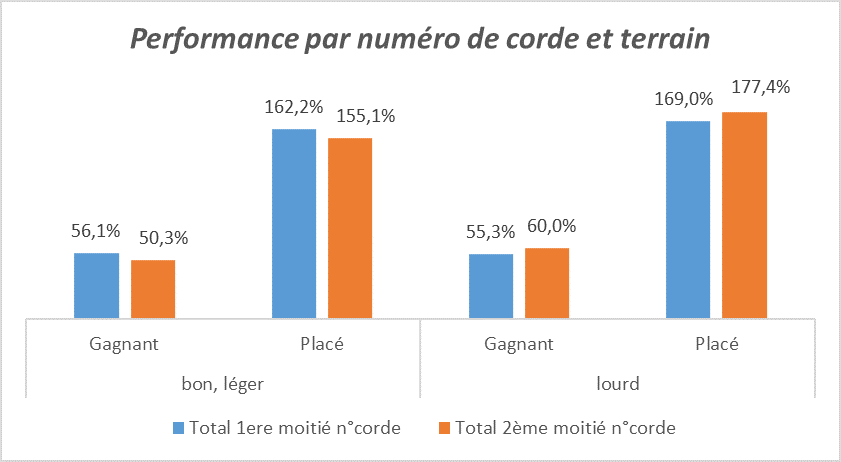The Thames Water Bonus Debate: Fair Pay Or Public Outrage?

Table of Contents
Keywords: Thames Water, water bonuses, executive pay, public outrage, water crisis, fair pay, corporate responsibility, water industry, London water, water services, Ofwat, executive compensation, water shortages, environmental breaches.
The awarding of bonuses to Thames Water executives amidst widespread criticism of the company's performance and persistent water shortages has ignited a firestorm of public outrage. This article delves into the complex arguments surrounding this controversial decision, examining the justifications for the bonuses and the compelling reasons why many consider them deeply unfair. The debate raises crucial questions about corporate responsibility, fair pay, and the relationship between private companies and the public services they provide.
The Arguments for Thames Water Bonuses
Performance-Based Incentives
Proponents argue that the bonuses were awarded based on the achievement of pre-defined performance targets, incentivizing improved company performance and efficiency. These targets might include:
- Infrastructure improvements: Investing in and upgrading aging water infrastructure to reduce leakage and improve service reliability.
- Customer service enhancements: Improving customer satisfaction through better response times to complaints and proactive communication.
- Regulatory compliance: Meeting stringent environmental regulations and avoiding penalties for non-compliance.
However, critics question the validity of these targets. Are they realistically ambitious, or easily achievable regardless of genuine improvements in service? Furthermore, are these targets appropriately weighted against environmental responsibility and genuine customer needs, or do they prioritize profit over public good?
Attracting and Retaining Talent
Thames Water, like any large organization, argues that competitive salaries and bonus structures are essential to attract and retain highly skilled professionals within the demanding water industry. Failing to offer competitive compensation could lead to a brain drain, impacting the quality of service provided.
- Comparisons with salaries in similar roles at other UK water companies and internationally reveal a competitive landscape requiring significant financial investment to secure top talent.
- A poorly compensated workforce could lead to decreased morale, impacting service delivery and potentially jeopardizing the safety and reliability of water supplies.
Contractual Obligations
Some argue that the bonus payments were legally mandated due to pre-existing contractual agreements with executives. These contracts might include clauses specifying performance-based incentives and bonus structures.
- The specific details of these contracts and relevant clauses often remain undisclosed, leading to further public distrust.
- The ethical implications of such contracts, especially given the public outcry, deserve careful scrutiny. Were these agreements fair and reasonable given the potential for public backlash?
The Arguments Against Thames Water Bonuses
Public Perception and Corporate Responsibility
The most significant criticism centers on the perception of the bonuses as deeply insensitive and tone-deaf given the ongoing water crisis affecting millions of Thames Water customers. This perception fuels broader concerns regarding corporate social responsibility.
- The severity of water shortages, including hosepipe bans and restrictions on water usage, has significantly impacted communities and businesses.
- Public opinion polls and social media analysis unequivocally demonstrate widespread public anger and frustration towards Thames Water's handling of the situation and the awarding of bonuses.
Lack of Accountability for Environmental Performance
Critics highlight Thames Water's failure to adequately address environmental concerns and breaches of regulatory standards, despite the payment of executive bonuses.
- Examples of environmental breaches include sewage overflows and failure to meet targets for reducing leakage, resulting in fines and reputational damage.
- The apparent lack of tangible environmental improvements despite significant bonus payouts further exacerbates public anger and mistrust.
Executive Compensation Compared to Average Employee Pay
A stark contrast exists between the substantial executive bonuses and the wages of average Thames Water employees, and indeed the average UK income. This significant disparity fuels accusations of unfairness and greed.
- The sheer scale of the difference between executive pay and average worker compensation highlights a moral and ethical issue.
- The public perception of such vast income inequality underscores the need for greater equity and fairness within the water industry.
Regulatory Scrutiny and Future Implications
Ofwat's Role and Potential Investigations
The water regulator, Ofwat, is responsible for investigating Thames Water's practices and determining whether any regulatory breaches have occurred. The outcome of these investigations could have significant consequences for the company.
Impact on Public Trust and Future Regulation
The Thames Water bonus controversy has severely damaged public trust in water companies and is likely to influence future regulations within the sector. Increased public scrutiny and tighter controls on executive compensation are almost certain.
Calls for Reform of Executive Compensation in the Water Industry
The debate has sparked calls for comprehensive reform of executive pay structures within the water industry. This includes exploring alternative incentive schemes that better align executive interests with environmental sustainability and public service.
Conclusion
The Thames Water bonus debate highlights a significant disconnect between executive compensation and public expectations, particularly in the context of a failing public service. While arguments for performance-related pay exist, the scale of the bonuses and their timing against the backdrop of water shortages and regulatory failures have rightly provoked widespread public outrage. This necessitates a thorough review of executive pay structures within the water industry and a greater emphasis on corporate social responsibility. It’s crucial to consider the ethical implications of such significant disparities and to ensure that future executive compensation plans align with the interests of both the company and the public it serves. The debate around the Thames Water bonuses serves as a powerful reminder of the need for greater accountability and transparency within the water sector. Let's continue the conversation about fairer compensation and improved water services for all.

Featured Posts
-
 Liga Natiunilor Scor Surprinzator Georgia 6 1 Armenia
May 22, 2025
Liga Natiunilor Scor Surprinzator Georgia 6 1 Armenia
May 22, 2025 -
 La Croissance Du Secteur De La Corde A Nantes
May 22, 2025
La Croissance Du Secteur De La Corde A Nantes
May 22, 2025 -
 Exploring The Richness Of Cassis Blackcurrant From Berry To Bottle
May 22, 2025
Exploring The Richness Of Cassis Blackcurrant From Berry To Bottle
May 22, 2025 -
 Allentown Makes History At Penn Relays First Sub 43 4x100m Relay
May 22, 2025
Allentown Makes History At Penn Relays First Sub 43 4x100m Relay
May 22, 2025 -
 Fratii Tate Intoarcerea In Romania Si Intampinarea De Catre Fani
May 22, 2025
Fratii Tate Intoarcerea In Romania Si Intampinarea De Catre Fani
May 22, 2025
